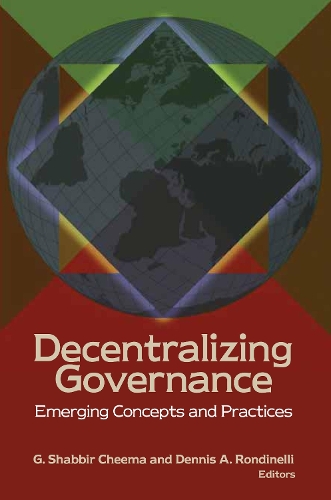
Decentralizing Governance: Emerging Concepts and Practices
(Paperback)
Publishing Details
Decentralizing Governance: Emerging Concepts and Practices
By (Author) G. Shabbir Cheema
Edited by Dennis A. Rondinelli
Bloomsbury Publishing PLC
Brookings Institution
11th June 2007
United States
Classifications
Professional and Scholarly
Non Fiction
Labour / income economics
Industrial relations, occupational health and safety
Non-governmental organizations (NGOs)
352.3
Physical Properties
Paperback
338
Width 158mm, Height 234mm, Spine 20mm
503g
Description
In this thought-provoking book, the first in a new series on Innovations in Governance, experts in government and public management trace the evolution and performance of decentralization concepts, from the transfer of authority within government to the sharing of power, authority, and responsibilities among broader governance institutions. This movement is not limited to national governmentit also affects subnational governments, NGOs, private corporations, and even civil associations. The contributors assess the emerging concepts of decentralization. They detail the factors driving the movement, including political changes such as the fall of the Iron Curtain and the ascendance of democracy; economic factors such as globalization and outsourcing; and technological advances.
Reviews
Author Bio
G. Shabbir Cheema is the principal adviser on governance in the Department of Public Administration and Development Management, within the UN's Department of Economic and Social Affairs. His most recent book is Building Democratic Institutions: Governance Reform in Developing Countries (Kumarian Press, 2005). The late Dennis A. Rondinelli was senior research scholar of public policy studies at Duke University's Center for International Development. Among his books is Beyond Reconstruction in Afghanistan: Lessons from Development Experience, coedited with John D. Montgomery (Palgrave, 2004).
